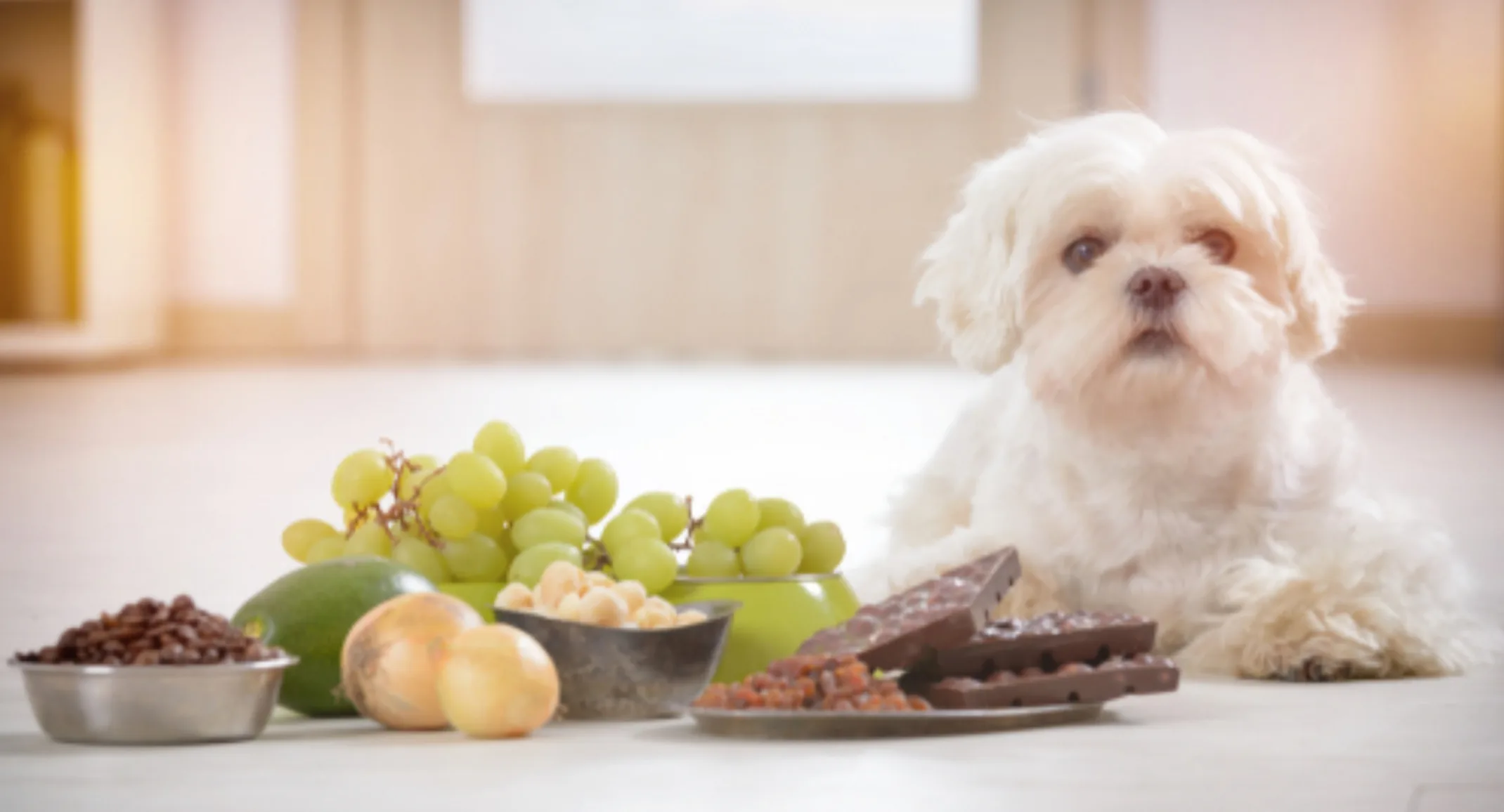Food and Everyday Items to Avoid
Food

We’ve all been told of the danger of feeding table scraps to our pets.
Yet some dog owners find it hard to say no when their beloved (and adorable) pet begs for a handout. It’s important to note, however, that dogs and humans have different metabolisms, and some foods that are perfectly safe for us to eat can be downright dangerous if consumed by man’s best friend.
Here is a list from your Toronto veterinarian of some of the more common foods to avoid feeding your four-legged companion.
Alcoholic Beverages
Baby Food
Bones (from fish, poultry, or other meat)
Cat Food
Caffeinated Products (like chocolate, coffee, or tea)
Fat Trimmings
Grapes or Raisins
Macadamia Nuts
Marijuana
Milk and Other Dairy Products – opt instead for lactose-free milk products for pets.
Moldy/Spoiled Food, Garbage
Mushrooms
Onions and Garlic (raw, cooked, or powder)
Fruit Pits (peaches, plums, etc.)
Potato, Rhubarb, and Tomato Leaves, as well as Potato and Tomato Stems
Raw Eggs
Raw Fish
Salt
Sugary Foods
Tobacco
Yeast Dough
Xylitol (artificial sweetener)
None of these items should ever be ingested by a dog, either intentionally or unintentionally.
Table scraps, especially in large amounts, are simply not nutritionally balanced for the digestive and metabolic system of a dog. For this reason, most Toronto veterinarians recommend that no handouts be given to the family pet.
If you insist on sharing some of your food with your dog, however, it should never make up more than 10% of your animal’s diet. Additionally, all fat should be trimmed from meat and all bones carefully removed prior to feeding.
If your dog is used to table scraps and you’re having a hard time transitioning back to a diet of strictly dog-approved food items, talk to your Toronto veterinarian. He or she can provide advice and guidance on the right diet for your pet – one that will be tasty and promote ongoing nutrition for a long, happy and healthy life.
